WARR Space Labs – Project Rocketlabs
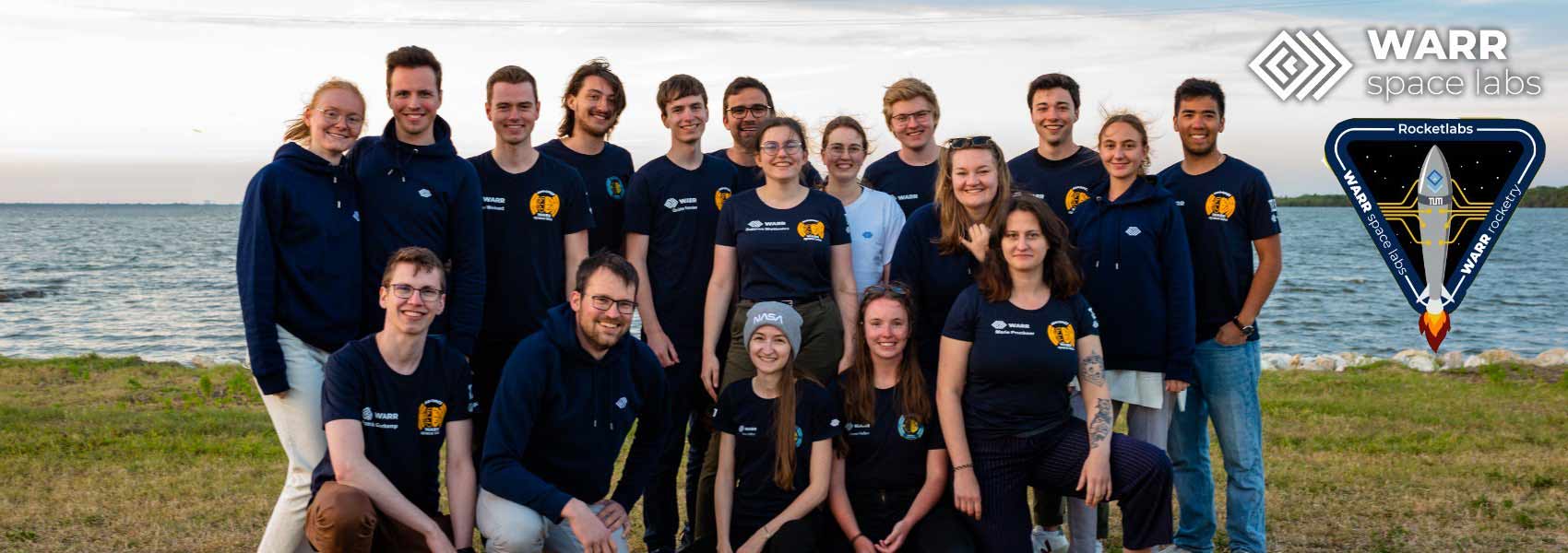
About WARR Space Labs
WARR Space Labs is the newest team of WARR e.V. – the Scientific Workgroup for Rocketry and Spaceflight – a student association located at the Technical University of Munich (TUM) dedicated to creating the next generation of spaceflight engineers and scientists. The goal of the Space Labs team is to develop, build and perform experiments in microgravity.
Our biggest experiment yet – ADDONISS (Ageing and Degenerative Diseases of Neurons on the ISS) – was sent to the International Space Station ISS in March of 2023, as part of the Überflieger 2 competition, organized by the Germany Space Agency DLR and the Luxembourg Space Agency LSA. Its goal was to study neurons and the electrical signals they express autonomously aboard the ISS in microgravity in a 2U cube while keeping the cells alive and monitoring them via a mini microscope. Additionally, β-Amyloid, a hallmark of Alzheimer’s disease, was added to the nutrient medium to observe any changes in the cell’s electrical signals.
Project Rocketlabs – A collaboration between two WARR teams
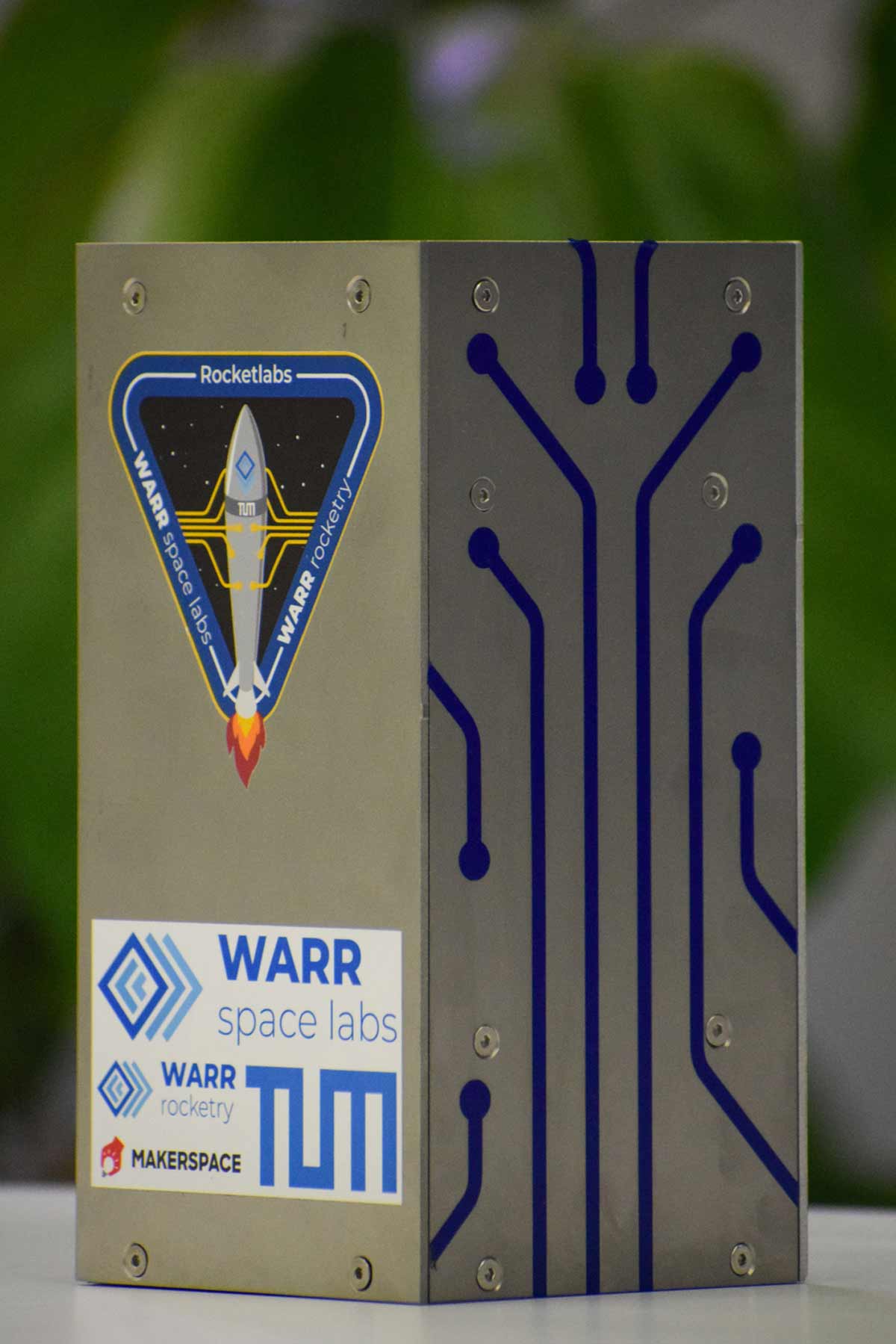
Project Rocketlabs marked the beginning of a long-lasting cooperation between the two WARR Teams, Space Labs and Rocketry. Space Labs provides experiments which can be flown as Payloads aboard rockets, built by WARR Rocketry. Rocketlabs was the first payload designed to fly aboard the Project Nixus EX-4 rocket at the European Rocketry Challenge (EuRoC) in October 2023.
This experiment builds upon the ISS experiment ADDONISS and is designed to test new and improved iterations of components and new iteration concepts. We will also get the chance to operate our system during the rockets ascend phase, something we could not do with our ISS experiment ADDONISS, enabling us to further test our system and its components. Unlike ADDONISS, the payload will not include any living cells, as we are currently in the process of improving the experiment setup itself, a process better validated by sensors rather than cells.
Cooperation with Eurocircuits
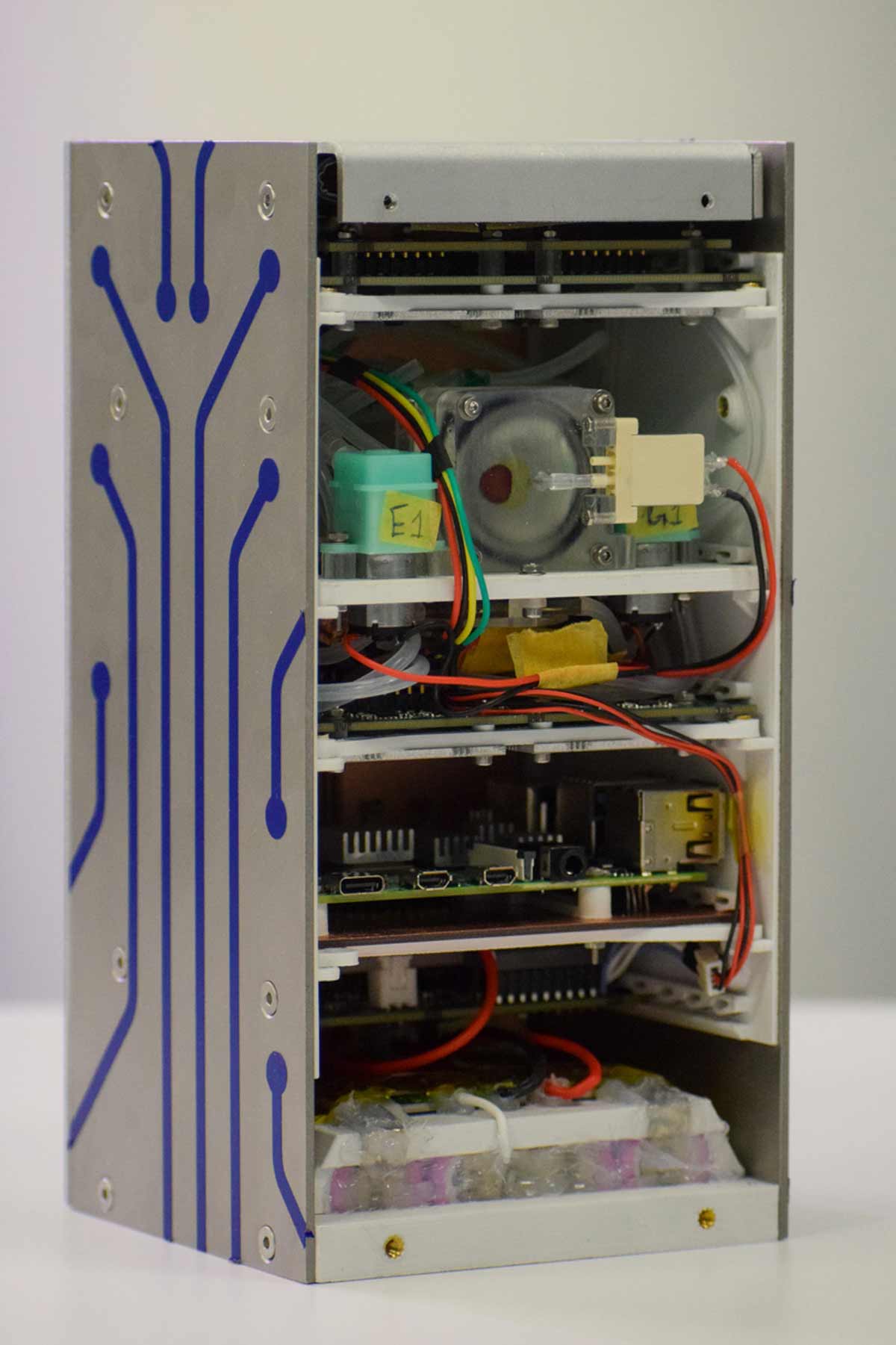
Self-developed custom PCBs are at the center of our experiments. Our cooperation with Eurocircuits enables us to add the features and functionality we need to our experiment, which would not be possible otherwise.
In an earlier blog post, we already mentioned our MEA Signal Generator Board, Heating Board, and Fluid Control Board. With this blog post, we want to give more insights into the Power Board and the Readout Board, the last two essential PCBs of Project Rocketlabs, which Eurocircuits has manufactured.
Power Board
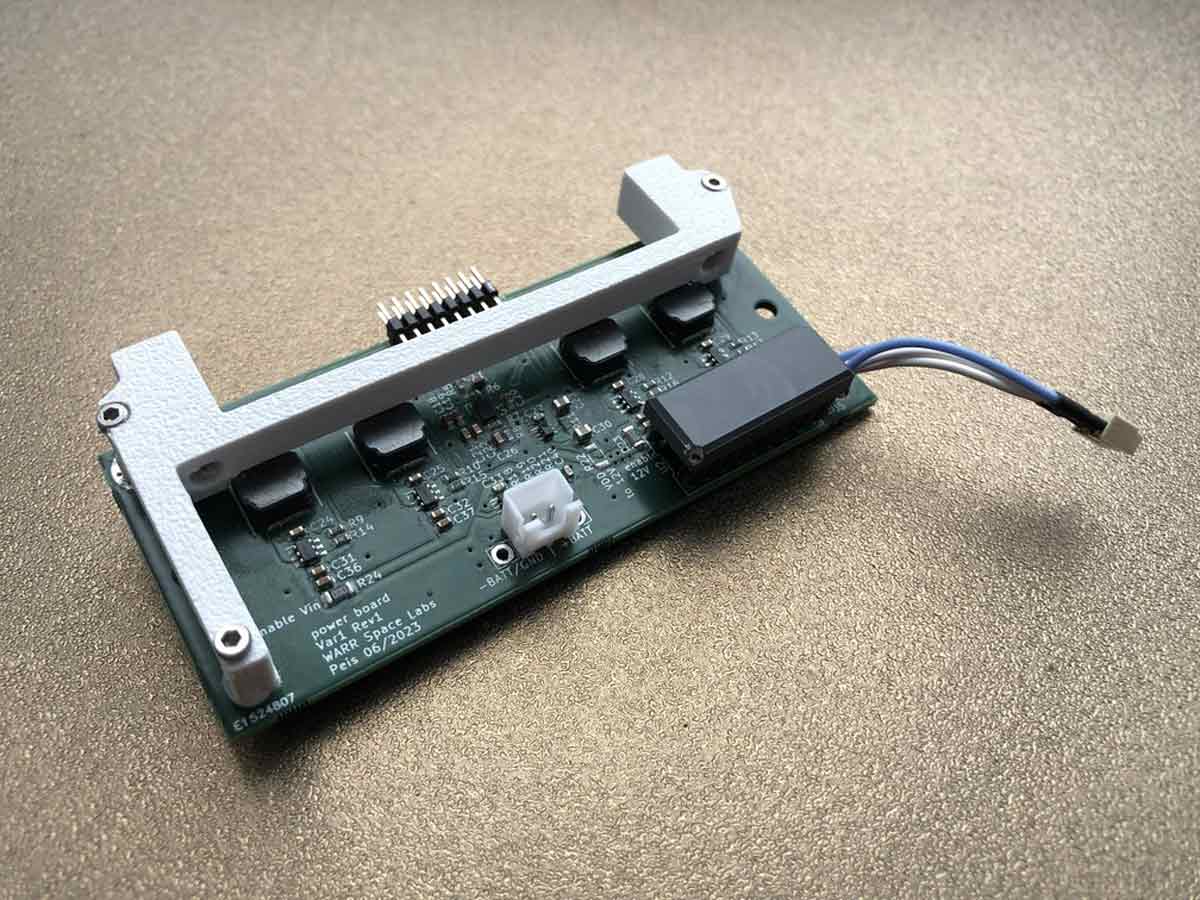
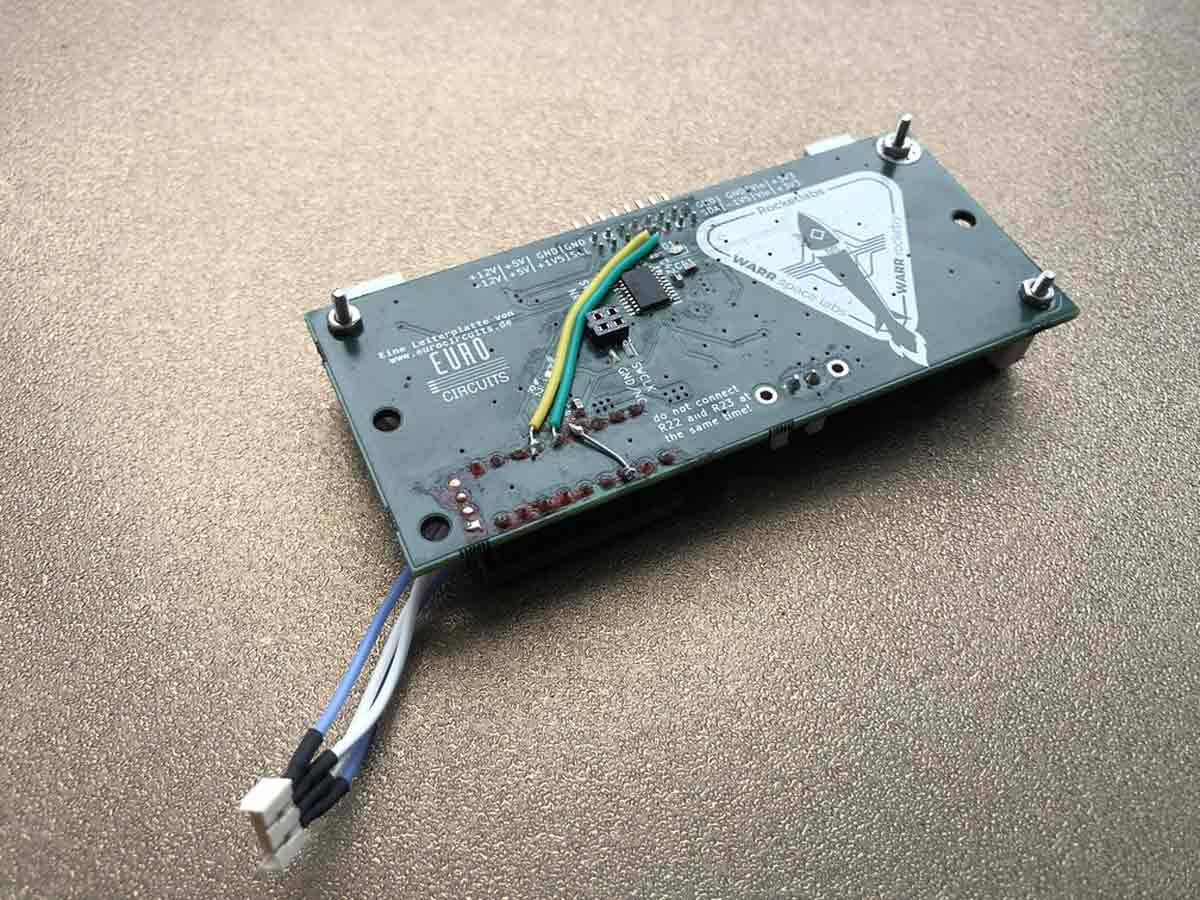
All electrical systems in the experiment require power not only during the moments the rocket is in the air but also throughout all necessary preparation phases. During some phases, the integrated battery can be recharged, while in others, it serves as the sole power source for the system. The battery functions as both a buffer and the main power input for the power board, providing electrical energy to all subsystems in the experiment. Its primary tasks include generating the common 3.3V, 5V, and 12V rails that power most digital logic devices, such as microcontrollers and the Raspberry Pi.
In addition to these standard components, the experiment has unique requirements. The analog circuitry in the readout system needs low-noise, bipolar (positive and negative) voltage rails, generated by a linear regulator for the positive rail and a combination of a charge pump and a second linear regulator for the negative rail. Additionally, one of the Fluid pumps requires a custom driver for operation, which is also integrated into the power board.
Readout Board
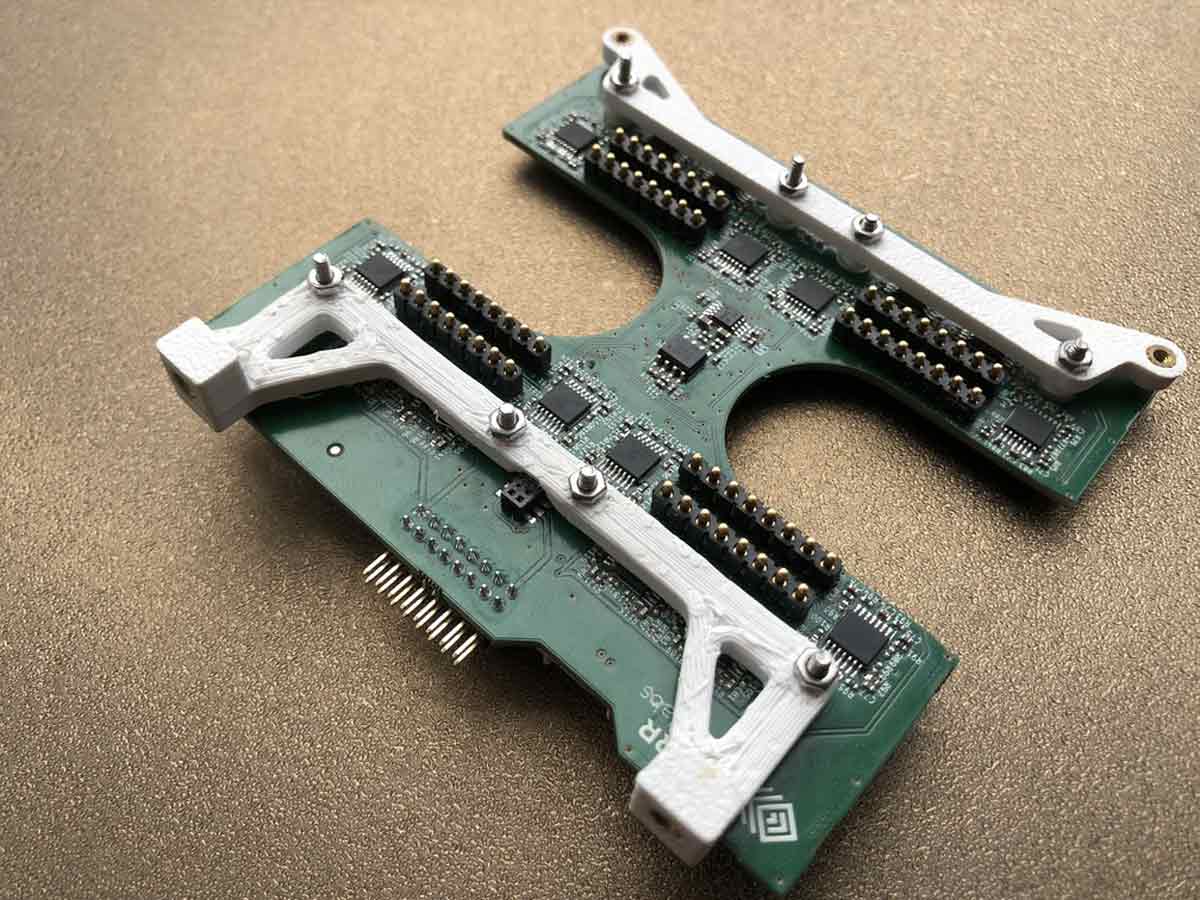
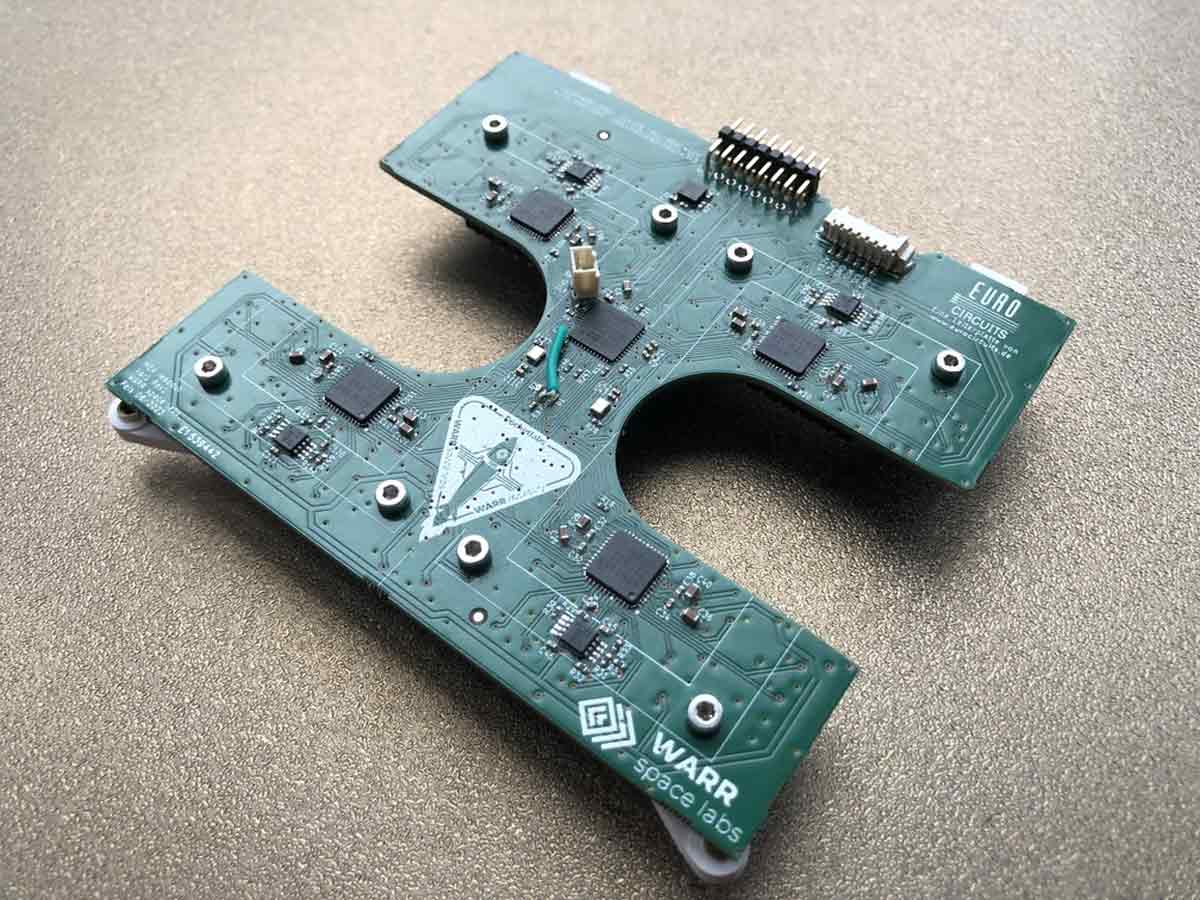
The readout board is essential for acquiring and recording all data from the test object in our experiment, the MEA Signal Generator Board. The challenge is that the analog signals from the test object are often weak and require additional amplification before being digitized by an analog-to-digital converter (ADC). To maintain signal integrity, the previously mentioned low-noise voltage rails power all analog circuitry. In this iteration of Project Rocketlabs, the Readout Board served an additional purpose: The MEAs used in ADDONISS were soldered to the Readout Board. We wanted to check whether it was also possible to connect them via Pogo-Pins and still be able to successfully gather data from them. That’s why two sample MEAs were sent along for a scratch test, verifying whether the thin gold electrodes on the glass MEA could withstand the pogo-pin forces during the launch without damage.
Experiment Outcome
Sadly, the EX-4 rocket could not launch at the European Rocketry Challenge 2023 due to technical difficulties. Project Rocketlabs is currently waiting for the next launch opportunity on one of the rockets designed and built by our sister team, WARR Rocketry.

For more information please visit the WARR website.





